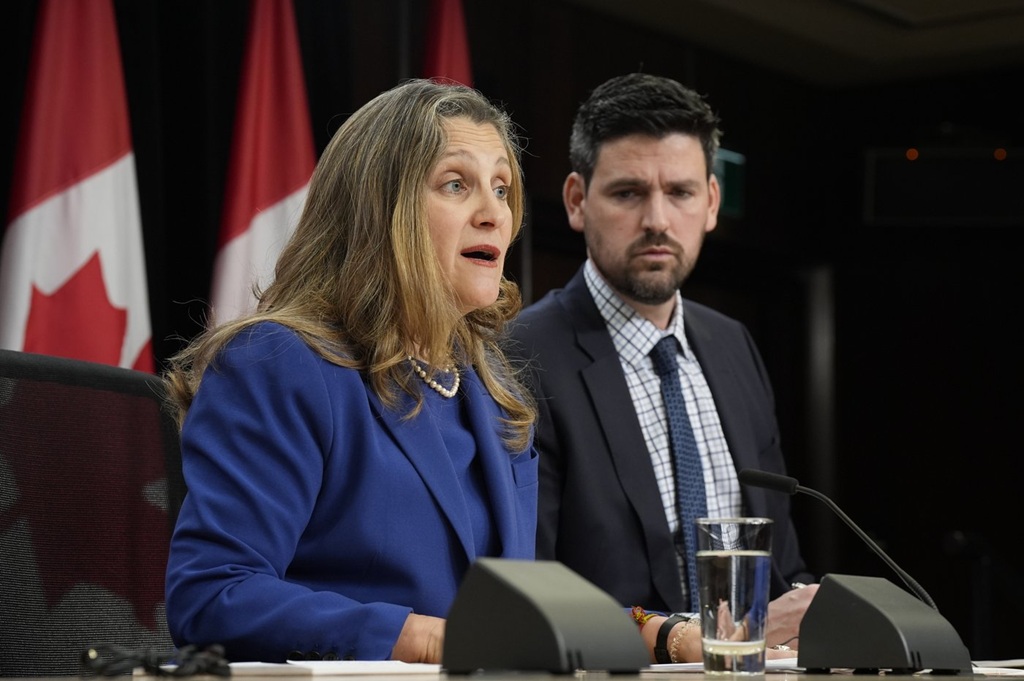Political turbulence is shaking the very roots of Prime Minister Justin Trudeau’s government, with high-profile cabinet ministers exiting and public confidence waning. Top Cabinet Ministers Chrystia Freeland and Sean Fraser both resigned on Monday.
Chrystia Freeland, one of Trudeau’s most trusted allies and Canada’s finance minister, resigned, leaving a gaping hole in his cabinet.
Her letter to the prime minister revealed deep tensions: disagreements over economic policy and how to confront the challenges of re-elected U.S. President Donald Trump.
Freeland cited concerns about Trudeau’s economic decisions, including programs she deemed irresponsible during a financial crunch, as a key reason for her departure.
This isn’t just a blow—it’s a political earthquake. Freeland’s track record as deputy prime minister and finance minister carried the country through the financial chaos of the pandemic.
Her ability to navigate economic complexities made her indispensable. However, Trudeau’s recent moves, such as proposing costly direct payments to citizens amidst a swelling deficit, have driven a wedge between them.
Freeland has made it clear: Canada cannot afford politically motivated spending when economic threats like Trump’s tariffs loom large.
Trudeau has introduced policies addressing the rising cost of living, but critics argue that these are more about optics than substance.
Trudeau’s GST Gimic
A now-contentious proposal involved cutting $250 cheques to middle-income Canadians earning below $150,000 annually. While many welcomed the idea, concerns about its $4.7 billion price tag grew louder.
Freeland openly opposed the plan, labelling it a “gimmick” the country couldn’t afford.
A poll by the Angus Reid Institute showed four out of five Canadians viewed the initiative as a political ploy to boost Trudeau’s sagging approval ratings. The holiday tax break on basic goods, estimated to cost $1.6 billion in lost revenue, also drew ire from economic experts.
While it might bring short-term relief, the long-term impact on Canada’s public finances remains uncertain. These decisions highlight fissures not just in Trudeau’s economic approach but also within his party.
On Monday, the federal housing minister Sean Fraser also announced his departure.
Fraser cited personal reasons, stressing a desire to spend more time with family. While his explanation strikes a familiar chord, it raises questions about morale among Liberal cabinet members.
Fraser’s exit follows a devastating election loss for the Nova Scotia Liberal Party, which might serve as a cautionary tale for the federal Liberals.
His departure signals another blow to Trudeau’s team at a time when the prime minister can’t afford any more turbulence.
Calls for an Election
Meanwhile, Conservative leader Pierre Poilievre wasted no time pouncing on Trudeau’s crisis. He described Freeland’s resignation as “the worst time” for Canada and called for an early federal election.
Poilievre portrays Trudeau’s government as unravelling, with economic instability, scandals, and resignations piling up.
The Conservatives see these events as an opportunity to push for a change in leadership. They’ll likely frame their campaign around steady leadership and economic responsibility if a federal election is called.
Whether or not this resonates with voters remains to be seen, but the cracks in Trudeau’s government are hard to ignore.
Trudeau’s once-strong leadership is now being tested like never before. Cabinet loyalty seems to be waning, and public trust is eroding.
The Liberals’ ability to unite around a coherent, financially prudent strategy will be critical. But with elections looming, time isn’t on their side. The real question is whether Trudeau can rebuild trust within his party and base or whether Canadians will opt for change.
Freeland’s promise to run in the next election highlights that even among former allies, Trudeau may face challenges from within.








